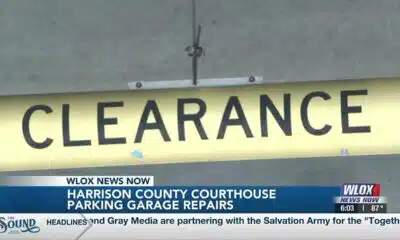Local News
Speaker White, Lt. Gov. Hosemann unveil tax cuts, other proposals as 2025 legislative session starts
SUMMARY: Mississippi’s legislative leaders are proposing tax cuts and Medicaid expansion as key issues for the 2025 session. Lt. Gov. Delbert Hosemann advocates reducing the income and grocery taxes, while House Speaker Jason White wants to eliminate the income tax entirely. Both plans include making municipalities whole from the grocery tax reduction. Medicaid expansion discussions may be delayed until federal decisions on work requirements are made. Other proposed legislation includes improving public school attendance, making the Public Employees Retirement System sustainable, reforming medical laws, expanding education savings accounts, and legalizing mobile sports betting. Governor Tate Reeves will have the final say on these measures.
The post Speaker White, Lt. Gov. Hosemann unveil tax cuts, other proposals as 2025 legislative session starts appeared first on www.wxxv25.com
Local News
US retail sales bounce around in a whipsaw trade environment
SUMMARY: In June, U.S. retail sales rose 0.6% after two months of declines, showing resilient consumer spending despite tariff concerns and economic uncertainty. Auto sales led gains, with increases in clothing and personal care, while electronics and appliances declined. Consumers prioritized necessities but maintained modest discretionary spending, such as dining out. Inflation rose to 2.7% yearly, driven by tariffs, complicating Federal Reserve decisions on interest rates. Online sales surged during Amazon’s Prime event, with shoppers focusing on essentials. Retailers prepare for a strong back-to-school season amid ongoing trade policy challenges, adjusting inventories and prices to manage tariff impacts.
The post US retail sales bounce around in a whipsaw trade environment appeared first on www.wxxv25.com
Local News
List of 2025 Emmy nominees in key categories
SUMMARY: The Emmy nominations highlight “Severance” leading with 27 nods, and “The Studio” topping comedy with 23. Drama series contenders include “Andor,” “Paradise,” “Severance,” and “The Last of Us.” Comedy nominations feature “Hacks,” “The Bear,” and “Abbott Elementary.” Limited series like “The Penguin” and “Black Mirror” also shine. Notable drama actors nominated include Sterling K. Brown and Pedro Pascal; comedy actors include Seth Rogen and Martin Short. Reality competition shows such as “RuPaul’s Drag Race” and “Survivor” are nominated, with RuPaul Charles up for host. Animated programs and scripted variety series like “Saturday Night Live” are also recognized, alongside outstanding game show hosts like Ken Jennings.
The post List of 2025 Emmy nominees in key categories appeared first on www.wxxv25.com
Local News
‘My dreams are finally coming true:’ first-year teacher from Ocean Springs shares emotions about starting career at former elementary school
SUMMARY: Abby Peltier, a first-year Fifth Grade English-Language Arts teacher at Ocean Springs Upper Elementary, eagerly prepares for her debut teaching year. A Mississippi State University graduate with a Master’s in Elementary Education, she balances excitement and nerves as she sets up her classroom, often spending days at school before the August 1 start date. Being an Ocean Springs native who once attended the same school adds a sentimental touch; she cherishes using her former teacher’s desk and working under her childhood principal. Supported by colleagues, family, and friends, Peltier embraces this significant milestone, ready to fulfill her teaching dreams.
The post ‘My dreams are finally coming true:’ first-year teacher from Ocean Springs shares emotions about starting career at former elementary school appeared first on www.wxxv25.com
-
News from the South - Tennessee News Feed5 days ago
Bread sold at Walmart, Kroger stores in TN, KY recalled over undeclared tree nut
-
News from the South - Arkansas News Feed7 days ago
Man shot and killed in Benton County, near Rogers
-
News from the South - Georgia News Feed1 day ago
Aiken County family fleeing to Mexico due to Trump immigration policies
-
News from the South - Alabama News Feed6 days ago
Girls Hold Lemonade Stand for St. Jude Hospital | July 12, 2025 | News 19 at 10 p.m. – Weekend
-
News from the South - Georgia News Feed7 days ago
Anti-ICE demonstrators march to Beaufort County Sheriff's Office
-
News from the South - Oklahoma News Feed7 days ago
Police say couple had 50+ animals living in home
-
Mississippi Today4 days ago
Coast judge upholds secrecy in politically charged case. Media appeals ruling.
-
Mississippi Today1 day ago
Driver’s license office moves to downtown Jackson












































